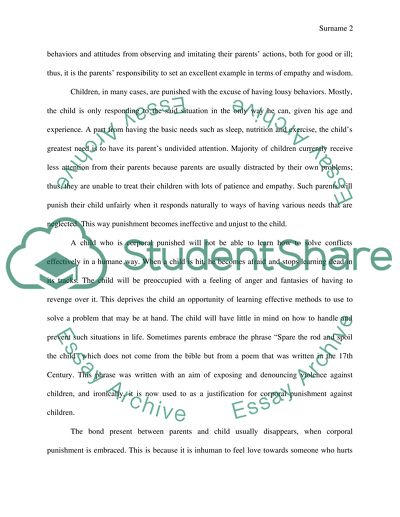Cite this document
(“Corporal Punishment and Its Effects on Children Essay”, n.d.)
Retrieved from https://studentshare.org/psychology/1449517-corporal-punishment-and-its-effects-on-children
Retrieved from https://studentshare.org/psychology/1449517-corporal-punishment-and-its-effects-on-children
(Corporal Punishment and Its Effects on Children Essay)
https://studentshare.org/psychology/1449517-corporal-punishment-and-its-effects-on-children.
https://studentshare.org/psychology/1449517-corporal-punishment-and-its-effects-on-children.
“Corporal Punishment and Its Effects on Children Essay”, n.d. https://studentshare.org/psychology/1449517-corporal-punishment-and-its-effects-on-children.


